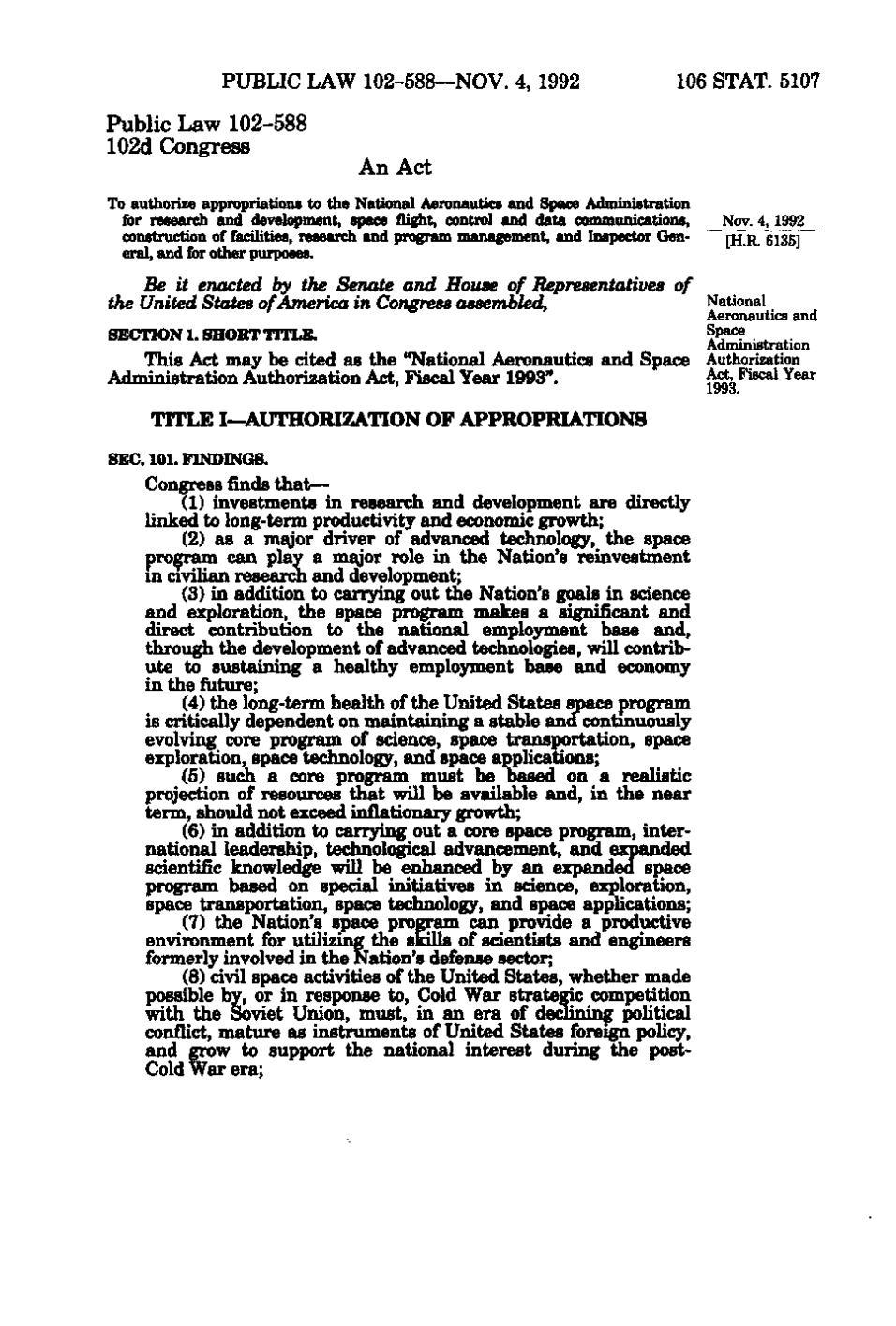PUBLIC LAW 102-588—NOV. 4, 1992 106 STAT. 5107 Public Law 102-588 102d Congress An Act To authorize appropriations to the National Aeronautics and Space Administration for research and development, space flight, control and data communications, construction of facilities, research and program management, and Inspector General, and for other purposes. Be it enacted by the Senate and House of Representatives of the United States of America in Congress assembled, SECTION 1. SHORT TITLE. This Act may be cited as the 'National Aeronautics and Space Administration Authorization Act, Fiscal Year 1993". TITLE I—AUTHORIZATION OF APPROPRIATIONS Nov. 4, 1992 [H.R. 6135] National Aeronautics and Space Administration Authorization Act, Fiscal Year 1993. SEC. 101. FINDINGS. Congress finds that— (1) investments in research and development are directly linked to long-term productivity and economic growth; (2) as a msgor driver of advanced technology, the space program can play a m£gor role in the Nation's reinvestment in civilian research and development; (3) in addition to carrying out the Nation's goals in science and exploration, the space program makes a significant and direct contribution to the national employment base and, through the development of advanced technologies, will contribute to sustaining a healthy employment base and economy in the fiitvire; (4) the long-term health of the United States space program is critically dependent on maintaining a stable andcontmuously evolving core program of science, space transportation, space exploration, space technology, and space applications; (5) such a core program must be based on a realistic projection of resources that will be available and, in the near term, should not exceed inflationary growth; (6) in addition to carrying out a core space program, international leadership, technological advancement, and expanded scientific knowledge will be enhanced by an expanded space program based on special initiatives in science, exploration, space transportation, space technology, and space applications; (7) the Nation's space program can provide a productive environment for utilizing the skills of scientists and engineers formerly involved in the Nation's defense sector; (8) civil space activities of the United States, whether made possible by, or in response to. Cold War strategic competition with the Soviet Union, must, in an era of declining political conflict, mature as instruments of United States foreign policy, and grow to support the national interest during the post- Cold War era;
�
